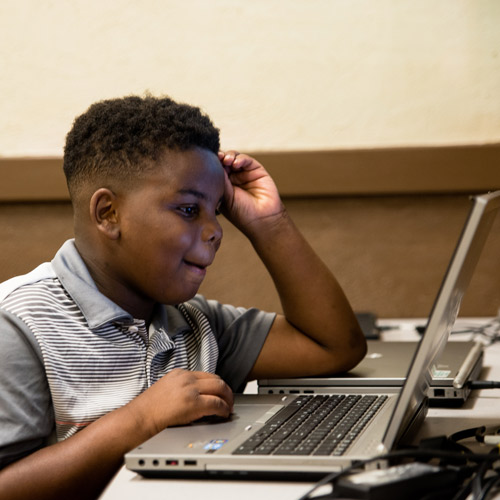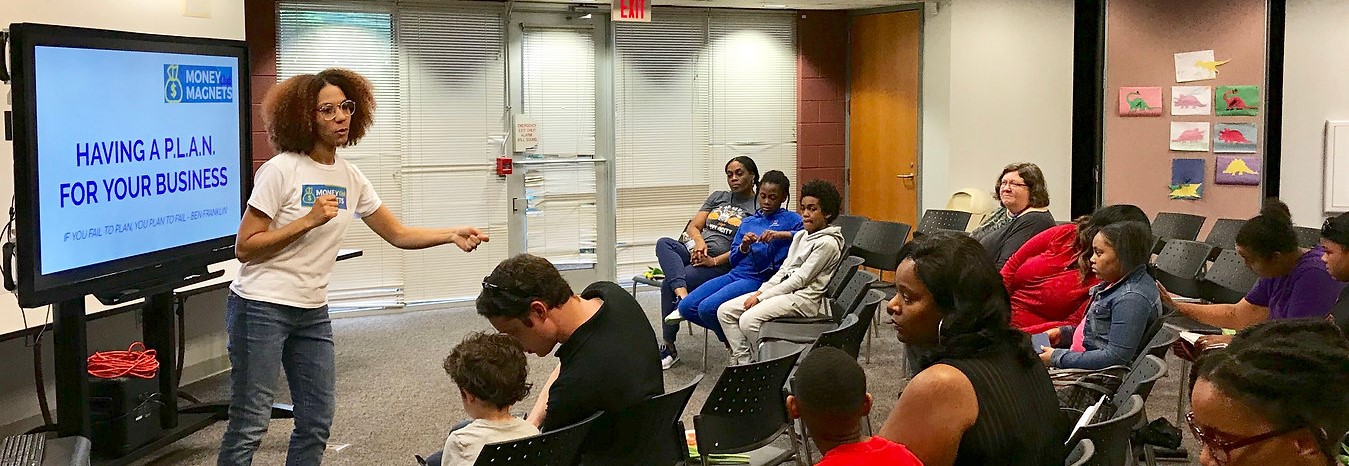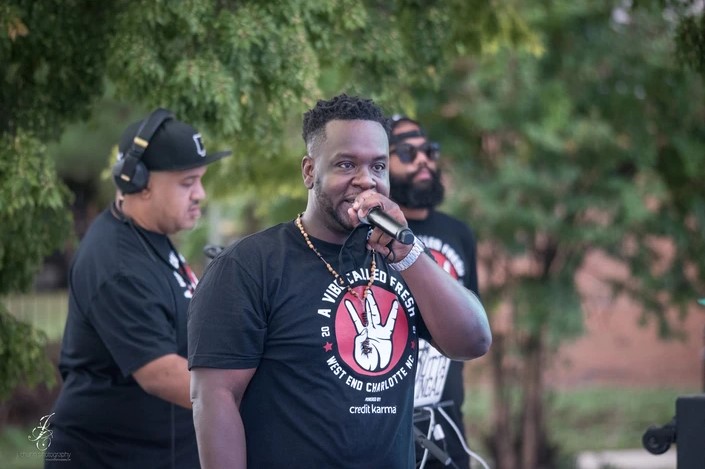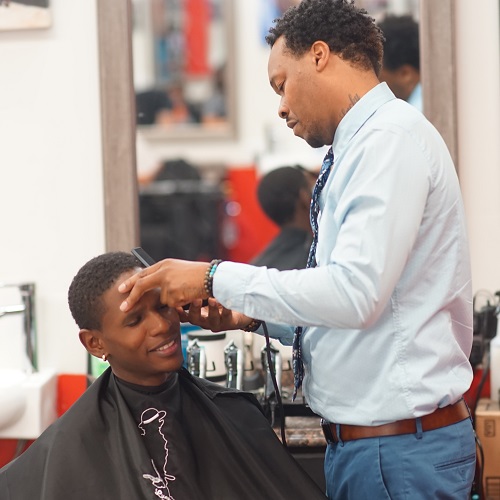
Eliminating the Digital Divide
This content has been archived. It may no longer be relevant
United Way of Central Carolinas’ Unite Charlotte works with small, grassroots organizations to improve racial equity and increase social capital. Since launching Unite Charlotte in 2016 in response to the civic unrest in Charlotte, United Way has invested nearly $900,000 in organizations including E2D.
Motivated by his young daughter’s concern about fellow students struggling to complete assignments because they lacked access to a computer and internet connectivity in their homes, Pat Millen sought a solution to bridge the digital divide in area schools.
Pat, who led a sports marketing company for 25 years, co-founded E2D in 2013 with his wife and children. E2D – an acronym for “Eliminate the Digital Divide” – aims to ensure all students have affordable access to at-home technology and digital literacy training to support academic success and prepare students for college, careers and beyond.
“A lot of families can’t afford computers, so they can’t do the work at home, and my daughter said that wasn’t fair,” said Pat, who also is E2D’s president. “We started just as a family trying to figure out how pervasive the gap was at her school.”
The nonprofit is a 2018 grantee of Unite Charlotte, a program led by United Way of Central Carolinas that provides early funding for local nonprofits and grassroots organizations focused on improving racial equity and increasing social capital. As a Grier Heights community partner, E2D also received funding in 2018 through United Way’s United Neighborhoods initiative.
In its early days, E2D focused efforts in Davidson – where Pat and his family live and where the children attended school. One of the first stops was Davidson Elementary School, where Pat discovered 54 families with students at the school didn’t have access to technology in their homes.
Working with a local internet provider and refurbishing donated laptops, E2D held its first computer distribution day on August 24, 2013. The 54 families each received a laptop, internet access and digital literacy training – a three-part recipe for digital inclusion.
“That day was magical, because at the end of that day we were able to say there’s not a digital divide at Davidson Elementary School,” Pat said. “It turned out to be just a great scenario.”
Over five years, E2D’s scope has expanded and led to ending the digital divide for all students in Davidson, Cornelius and Huntersville. E2D also began focusing on schools in Charlotte-Mecklenburg to address even larger digital divides.
The nonprofit already has distributed computers to students at 140 of Charlotte-Mecklenburg Schools’ campuses, providing laptops, digital access and computer training to more than 6,800 families.
“We remain convinced that what we do is essential for Charlotte to be able to emerge from this huge gap of 50 out of 50 for upward mobility,” Pat said. “For our lowest income families, education and technology are absolutely fundamental to helping people get out of poverty.”
In 2017, E2D’s footprint expanded with its Connect the Homeless program, which aims to supply laptops and mobile wi-fi hotspots for Charlotte-Mecklenburg Schools’ homeless students. Also in 2017, E2D launched Re-Image CLT, an initiative focused on career and college readiness for high schoolers. As part of the initiative, E2D has opened labs at West Charlotte, Garinger and South Mecklenburg high schools. A fourth lab is part of E2D’s headquarters in Cornelius.
The afterschool labs train and employ up to 12 students as computer technicians to refurbish used laptops donated by local companies. The restored computers are then distributed to families with students who remain on the wrong side of the digital divide.
“This is an intentional effort by E2D to create workforce development opportunities and to hire students to learn how to do this work,” Pat said.
With funding through Unite Charlotte and United Neighborhoods, E2D will tackle its mission much quicker, Pat said. The money allows E2D to expand its computer distribution to Walter G. Byers School and helps provide more than 100 Grier Heights families with laptops, hotspots and digital literacy sessions for youth and adults.
“Digital inclusion really opens up a lot of possibilities for families,” Pat said. “The future for us is continuing to chip away at the digital divide. We’re just going to keep going until we knock this out.”
Believe in the work we are doing? Give today.
Article written by Alyssa Mulliger, Content Marketing Manager, United Way of Central Carolinas.





Leave a Reply
You must be logged in to post a comment.